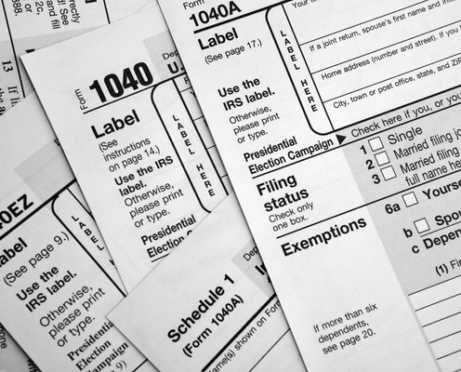
In my previous work at a public accounting firm, deductions were a frequent topic of discussion. We were always searching for ways our clients could maximize their tax deductions to pay less.
But what the average client didn’t realize is that we weren’t making up random reasons to spend money or hold onto a loan simply to deduct it later on. Rather, we were making strategic decisions that allowed our clients to end up in the best financial position possible.
Too often I hear from friends asking about how they can maximize deductions to lower their tax bill. Unfortunately, they’re asking the wrong question. In some cases, a lower tax bill is the result of a poor overall financial situation — not smart spending. Here’s what I mean:
The Business Owner Who Wants to Spend More at the End of the Year
When you run a business, you have expenses to pay. As a freelancer, I have to pay my utility bills every month. And if I had a landlord, I’d need to pay rent every month, too. I also have optional expenses. I could buy regular printer paper, or I could purchase fancy company letterhead that costs much more.
Business expenses reduce your income and, thus, reduce the amount of tax that you’ll have to pay each year. Some ill-advised business owners take this knowledge and spend a significant amount of money at the end of the year in order to lower their tax bill, even if they don’t need whatever it is they’re buying.
Manage Your Finances With This Free App
The expenses aren’t part of a bigger plan to grow revenue, reduce other expenses, or even prepay future expenses. They’re just expenses for the sake of lowering their tax bill.
Spending a dollar on business expenses to save a fraction of a dollar in taxes is absurd, but it happens more than you’d think.
Remember, tax deductions lower the income you pay tax on, but they don’t reduce the total amount of taxes that you pay. In other words, maximizing tax deductions will save you only 25 cents per dollar of deductions if you’re in the 25-percent tax bracket.
Yes, these people will get to use the product or service they bought, but unless that service or product has a good use in their business, the purchase probably wasn’t a sound decision.
In fact, many business owners often spend themselves into a lower tax rate. This effectively makes their deduction worth less than if they had taken those additional costs in the following year, as one of the quirks of graduated tax brackets.
“When a business owner asks what they can spend money on to save taxes, I ask if they would be willing to give me a $100 bill in exchange for four $20 bills,” says certified public accountant Bret Scholl of Scholl & Company. “Spending just to save taxes is no different.”
This doesn’t just happen with businesses, though. The following are two insane examples of how people let taxes control their decisions:
Mortgage Interest Deduction
Mortgage interest is one of the more popular tax deductions. Unfortunately, few people understand how it really works. In order to deduct your mortgage interest, you have to itemize your deductions. Many people forget that if you choose to itemize your deduction, which includes the mortgage interest deduction, you cannot take the standard deduction.
Even if you do itemize your deductions and deduct your mortgage interest, the amount up to the standard deduction would have been given to you anyway.
When choosing to itemize, you will receive a true tax benefit only if the itemized amount is greater than the standard deduction.
As such, avoiding paying off your mortgage because of the deduction may not be the best approach. You’re essentially paying $1 in interest for zero tax benefit if you take the standard deduction. And even if you itemize, you may only get a small benefit.
Which would you rather have: the money you pay in interest by paying off the loan, or a portion of that money in lower taxes by keeping the loan?
Student Loan Interest Deduction
Student loan interest is another common deduction people clamor over. Some suggest that you shouldn’t pay off your student loans faster than you have to because they’re a tax deduction.
Again, I’d rather have the whole dollar in interest I’d get to keep if I paid off my student loans quickly than the partial dollar that I’d get to keep through a tax deduction if I paid off the student loans slowly.
Many people don’t realize that you can deduct your student loan interest only if your income is below a certain level.
To maximize the tax deduction in 2021, your modified adjusted gross income (MAGI) must be below $70,000 if you file individually. Even then, you can deduct only $2,500 in student loan interest. To receive a partial deduction, your MAGI must be between $70,000 and $85,000.
The Bottom Line
Rather than getting excited about a tax deduction, you should instead take a look at your whole financial picture. Which would you rather have: a percentage of a dollar saved thanks to a tax deduction or the whole dollar in the case of deductible interest payments?
For business deductions, would you rather have a useless item that was 25 percent off thanks to a tax deduction, or the 75 cents, which you could spend on something useful? Answering these questions can help you determine what’s best for you and your taxes.
Additional background information for this article was provided by Bret Scholl, CPA, of Scholl & Company.










